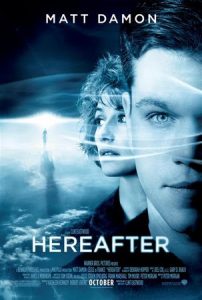
At some point, during the birth of my last child, I passed.
My now 5 year old munchkin’s head was too big for my pelvis, something my doctor and I only reluctantly concluded after a long span of fruitless pushing. I’d delivered two babies properly, after all. We were confident I’d be able to do it again.
It was supposed to be a 1 hour c-section. It turned into a whole night affair. After my daughter was pulled out, the doctors brusquely hustled her and my husband out of the operating room. I don’t remember much after that. I woke up once when I wasn’t supposed to, asked a question, and watched a group of doctors jump, startled. In retrospect, that was funny.
I was told that there was a lot of bleeding that couldn’t be stopped. A surgical team was called in, not once, but twice. I was given a transfusion. Later, a few times, I asked my doctor what really happened. All she would say is, “There was more blood than I’d ever seen before.”
How do you know when a medical procedure has gone terribly wrong? When doctors clam up with a sick expression on their faces. They don’t want to say a word because they fear litigation. I wouldn’t have sued. I had a healthy baby. I like and trust this doctor, she delivered my older girls, too.
On some level, I know what happened, and not because a team of surgeons showed up the next morning, demanding to operate because they’d never found the bleeder. I refused. I intended to nurse my infant. Another operation jeopardized that. They got pushy and I pushed back, and we called in my OBS, who brokered a deal: if my blood pressure didn’t drop over the next several hours, there’d be no operation.
My blood pressure remained stable, as I’d known it would. During the worst part of the previous night, when the doctors wouldn’t tell my husband what was going on and then he suddenly felt my absence, he phoned my healer friend Thomas. “I need your help,” Sabin said. “I don’t want to raise this baby by myself.” Thomas called Gerda, she called someone, and a healing circle was set up. And not just any healing circle: my friends are powerful, long time healers–healers of healers. And I was lucky they were.
Before the circle worked its magic–and the surgeons and transfusion worked theirs–I experienced something. I haven’t spoken of it much because it wasn’t the classic tunnel-and-white-light experience that gets a lot of airtime. Also because I didn’t know what to say about it. Even I, who have spent serious time and effort researching the far bounds of mysticism and consciousness, I didn’t know what to say about it. Also because it was a deep thing. It’s hard to discuss.
But my experience is clearly alluded to in Clint Eastwood’s new movie HEREAFTER. I listened with shock and relief as the Swiss doctor described exactly what I experienced. It was an electrifying and humbling moment.
But I wouldn’t have needed the personal validation to enjoy the movie. HEREAFTER is poignant, sweet, intense. Three people deal with death and the afterlife in ways that are somber, human, and deeply affecting. There are some funny moments; the boy Marcus’ journey to make contact with his dead twin has some painful comedy to it. There’s a rumor about Matt Damon and an Oscar run. I think he deserves it. His reluctant psychic is pitch perfect. The French journalist Marie is extremely appealing, and the French language scenes work exactly right.
I liked the brief mention that researchers into the afterlife face pressure and even censorship by religious groups. That rings true to me. What I experienced the night my daughter was born–and what I’ve experienced in altered states during meditation–has nothing to do with any religion. I mean, I don’t mind religion, mostly, except when one religion is persecuting another. I just think that Christianity, Judaism, Hinduism, Islam, Buddhism, etc. have almost nothing to do with the life and existence of the soul. They’re just taxonomy seeking expression.
The screenplay feels classically screenplay-ish, by which I mean that it’s well structured, follows all the rules, and will be analyzed to death by screenwriting classes. But that’s not a bad thing. I like structure. When it works, it gives a story its power. The interweaving of these three arcs, and the redemption that the three protagonists experience because they come together, is cathartic, transformative. I was deeply moved. Everyone in the audience seemed to be, also. Perhaps my husband Sabin said it best, when we walked out: “At last, a Hollywood movie that’s not for retards.”


